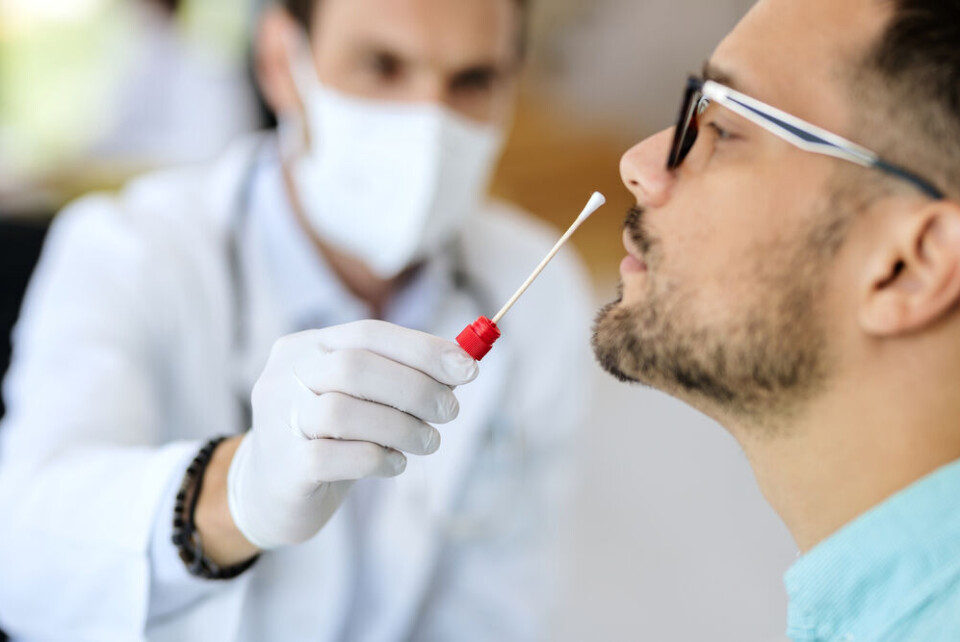-
Phone-at-wheel crackdown on drivers in south-west France
Immediate licence suspensions introduced for offence in three departments
-
Mysterious boom rattles residents in south-west France
'The shockwave clearly went sightseeing across the countryside', says local
-
France tightens reimbursement rules for flight delays or cancellations
New measures include mandatory mediation and new claim procedures
Covid France: How testing now works as cases rise again
The situation is particularly tense in Grand Est

Cases of Covid are rising across France, meaning that testing is once again recommended - although not required - for people who suspect they are infected. Not all tests are fully reimbursed, however.
We explain how the system now works.
Variant spread
The new variant Pirola (BA.2.86), and its sub-strain JN.1, are thought to be behind the spread. Cases are still far lower than those seen during the peaks of the pandemic, but still enough for health professionals to issue warnings.
Health authority Santé publique France has said that France is currently seeing a rise in “most indicators” of the virus.
This includes the number of cases, the incidence number (there were 32.8 cases per 100,000 people for the dates of November 20-26), and hospitalisations. Intensive care units are not currently overwhelmed, however.
Dr Benjamin Davido, infectologist at the Raymond-Poincaré hospital in Garches, has recently said that “the period of December to January normally corresponds with an uptick in contaminations”.
Read more: Health experts concerned by effects of Covid on winter illnesses
Which parts of the country are most affected?
Some areas are more affected than others, with departments in Grand Est currently seeing the most cases per number of inhabitants.
Bas-Rhin has the highest incidence level, at 116.47 cases per 100,000 inhabitants, closely followed by Haut-Rhin (111.9 cases per 100, 000 people), Meuse (92.62) and Moselle (91.15).
Although these figures are significant, they are still relatively low in comparison to incidence rates during peak infection points in 2020 and 2021, when the rate reached as high as 900 cases per 100,000 people.
What are the current rules for testing reimbursement?
At the height of the pandemic, Covid tests were fully reimbursed by the Assurance maladie in France for eligible people who had been vaccinated. Tests did not require a medical prescription.
But on March 1 this year, health authority la Direction générale de la santé (DGS) changed the procedure.
Now, the state will cover:
-
70% of the cost of the test if it is carried out by a doctor or pharmacist.
-
60% if done by a nurse.
Otherwise, people will be required to pay up to 40% of the total price of the test themselves. The prices are as follows:
- Lateral flow antigen test using a nasopharyngeal swab: €16.50.
- Laboratory PCR test: €43.89.
This means that if you have a PCR test from your GP - whether or not you have been vaccinated against Covid-19 - you need to pay between €13.16 and €17.55 (counting reimbursement).
For an antigen lateral flow test, you can expect to pay between €4.50 and €6.60 (counting reimbursement).
Tests bought privately or you do at home are not eligible for reimbursement.
Who can have a fully-reimbursed test?
Those who have complementary health insurance, and some people in vulnerable groups, can have their tests 100% reimbursed.
These include:
- patients with an affection longue durée (ALD, official long-term medical condition)
- people aged 65 and over
- minors
- medical and medico-social professionals, with proof of their status
- persons benefiting from maternity insurance exemption
- people undergoing group screening
Read also: Long Covid sufferers in France want official recognition by doctors
The rising incidence rate of Covid comes as health authorities have also warned of an ‘unusual rise’ in respiratory infections in France this winter, especially those caused by the mycoplasma pneumoniae bacteria.
Read more: Unusual rise in respiratory infections in France
However, Health Minister Aurélien Rousseau sought to allay concerns, and said on November 30: “Unlike Covid-19, this is a bacteria that we know well… we have six months of antibiotic stocks to treat any further patients in France.”
Related articles
Covid cases really are rising in France, says health minister
Covid in France: What are symptoms of the new variant Pirola?
























